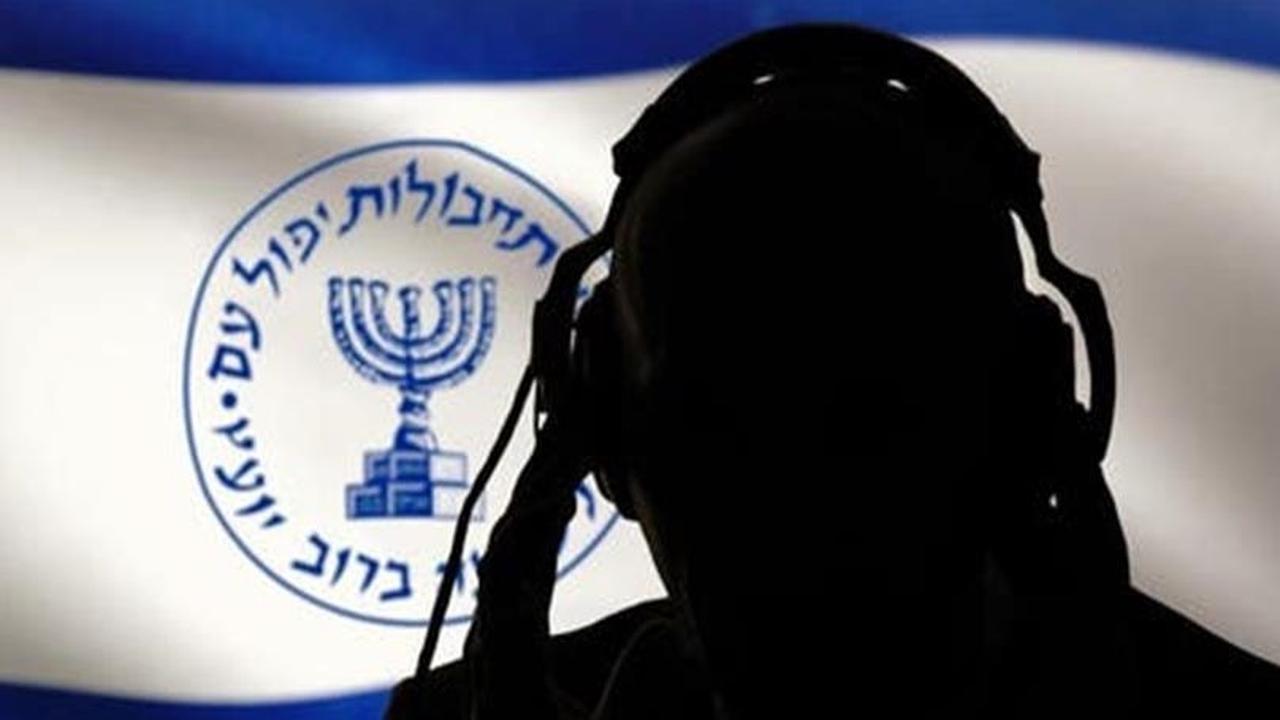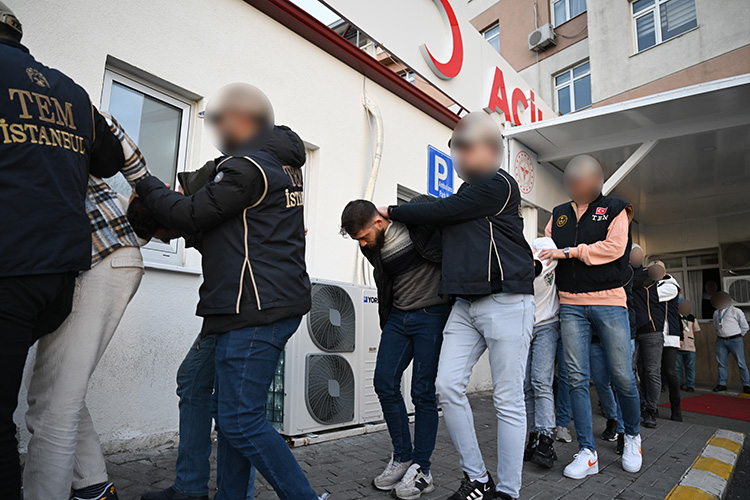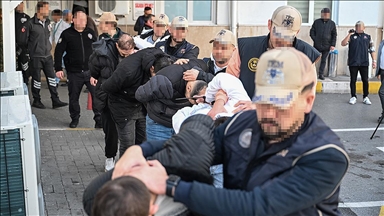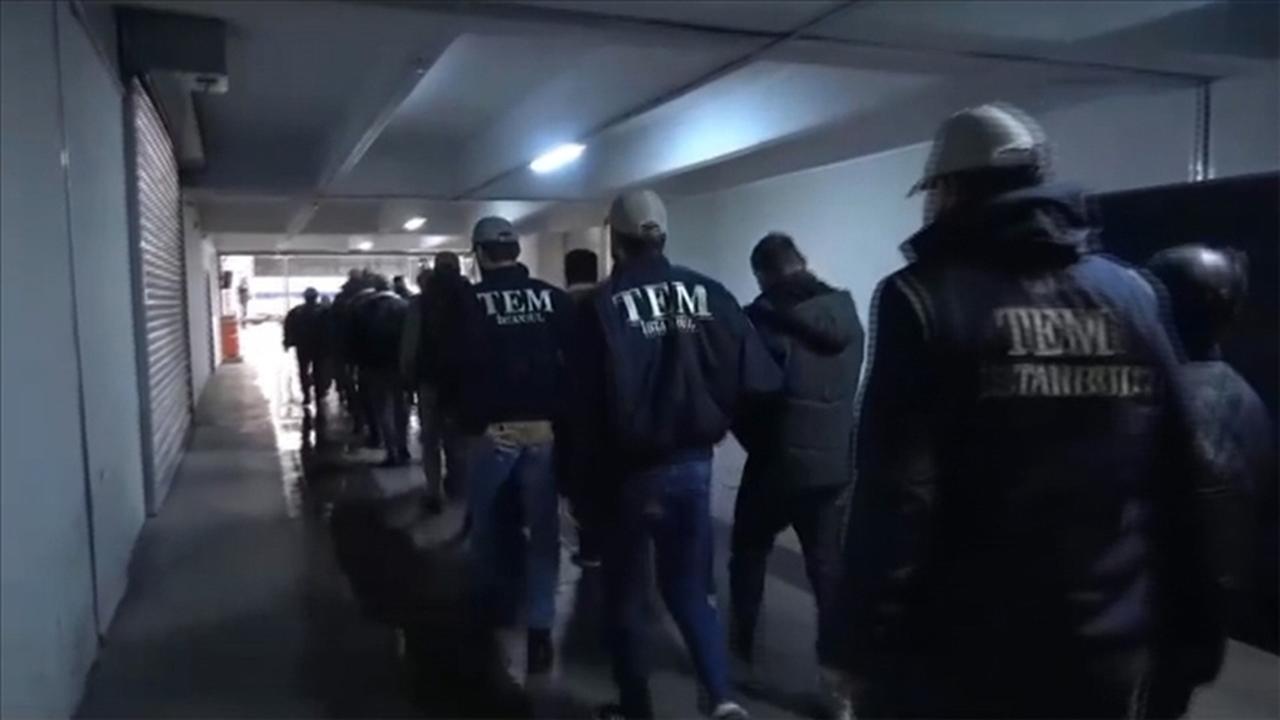
Turkish prosecutors have requested prison sentences ranging from 10 to 24 years for 20 defendants accused of conducting espionage activities for Israel's intelligence service Mossad, specifically targeting Palestinian nationals and individuals with alleged Hamas connections residing in Türkiye.
The case, being heard at Istanbul's 26th High Criminal Court, involves claims that the defendants obtained and transmitted classified information about Palestinians and Hamas-affiliated individuals to the Israeli Intelligence Service Online Operations Center (ICOM).
During Tuesday's hearing, six defendants without detention and their lawyers attended in person, while detained defendants participated via the Audio and Visual Information System (SEGBIS) from prison facilities.

The prosecutor's statement outlined that the defendants reportedly engaged in activities on behalf of ICOM, specifically obtaining information, documents, and photographs of Palestinian nationals and Hamas-linked individuals before transmitting them to Israeli intelligence.
"The defendants received compensation through the Hawala system, cryptocurrency, and Western Union—payment methods particularly used by terrorist organizations," the prosecutor stated in the indictment.
Detained defendant Ahmed M. A. Alostaz, identifying himself as Palestinian with family in Gaza, denied conducting espionage activities and requested acquittal.
Hazim Abdelradi, appearing without detention and speaking through an interpreter, testified that he came to Türkiye from Egypt to continue his education. "I have not engaged in any illegal activities," Abdelradi said, expressing trust in Turkish justice and requesting acquittal.

The court president announced that the trial is scheduled to last three days, with a verdict expected after all defendants present their defenses.
According to the indictment prepared by the Istanbul Chief Public Prosecutor's Office, Mossad's unit ICOM reportedly contacted defendants through job advertisements on messaging applications and social media platforms, subsequently communicating through seven different phone numbers.
The Israeli intelligence unit reportedly never conducted video or voice calls with the defendants, maintaining only text-based communications.
The indictment suggests the intelligence service aimed to utilize defendants for research, reconnaissance, photography, video documentation, surveillance, assault, injury, robbery, and kidnapping operations against targets.
The indictment references Financial Crimes Investigation Board (MASAK) reports indicating defendants received financial benefits from these alleged activities, with payments processed through hawala networks, cryptocurrency, and Western Union transfers.
Prosecutors expressed concern that gathered intelligence about locations where targeted individuals congregated could facilitate "execution and kidnapping operations" in subsequent phases.

The 20 defendants—Abdalla Akkad, Abdelrahman Ahmed Mahmoud Ahmed Elsobky, Abdurrahman Gabbes, Adi Alfunekh, Ahmed M. A. Alostaz, Ahmet Furkan Alalmis, Amal Sallami Ep Siala, Cemile Turk, Halid Heney, Hazem Mounir Amin Elgayyar, Hazim Abdelradi, Khalel Ibrahim Younus Basheer, Kadir Aydin, Luey Mektebi, Mahmud Izzettin, Mohamad Ahmad, Morched Siala, Muhammed Bilik, Muhammed Ali Veys, and Muhammed Nur Dervis— face charges of "chain-method political or military espionage" with potential sentences ranging from 18 years and nine months to 45 years in prison.